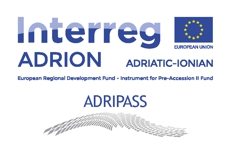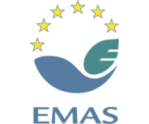The ADRIPASS project was approved for co-financing during the call for standard Interreg ADRION projects in 2017, priority axis 3, which aims to “ENHANCE CAPACITY FOR INTEGRATED TRANSPORT AND MOBILITY SERVICES AND MULTIMODALITY in the Adriatic-Ionian region”. The project involves 7 partners from the EU region, including Luka Koper and 4 associated partners. The activities will be attended by partners from Slovenia, Italy, Croatia, Bosnia and Herzegovina, Montenegro, Albania and Greece.
ADRIPASS will tackle the challenges hampering the growth and economic competitiveness of the transport sector in the ADRION region, mainly caused by the existing maritime and inland border crossings, between EU and non-EU, Schengen and non-Schengen countries. Accordingly, ADRIPASS aims to improve the planning capacities of transport stakeholders (port terminal/logistic operators, freight forwarders, railway companies) and national and European policy makers (Ministries of Transport, European Commission, TEN-T Corridor coordinators) facing the same challenges concerning the multimodal transport accessibility and network efficiency on the TEN-T Corridor sections in the ADRION region (from the port to the hinterland) and to increase the cooperation and coordination among them. The entire process of regional transport planning of a common transport policy aligned with the EU transport policy will be strongly supported and complemented by ADRIPASS project and its results. One of the main aims of the regional transport policy, which is alleviating the administrative bottlenecks caused in the logistic chains, for enabling a more efficient, sustainable and reliable transport system and operations, will be tackled through ADRIPASS as to ease the maritime-hinterland BCP transit in the region and by improving the intermodal platforms such as the ADRION ports. ADRIPASS will do so by: 1) analysing physical and non-physical bottlenecks on the TEN-T Corridor sections of the ADRION region, with a specific focus on those recently extended to the WBs, where most BCPs are located; 2) testing ICT solutions for streamlining freight transport in ADRION ports, setting standards which may be replicated to EDI interfaces at BCPs; 3) setting up an enduring multilevel and multidisciplinary transnational cooperation network, simultaneously and innovatively combining a bottom-up (from stakeholders to policy makers) and top-down (from policy makers to concrete action) approach. The project will end with the signing of a dedicated protocol that will ensure the sustainability of project results.





